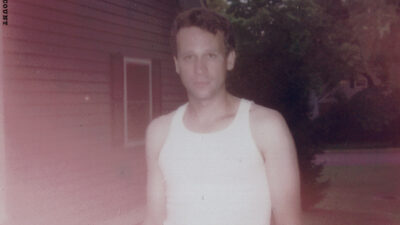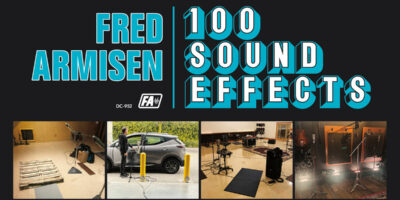Genre: Singer-Songwriter, Baroque Indie
Favorite Tracks: “Wasted On You,” “Telephone,” “Halloween Store,” “Sunset,” “Long Throw”
One of music’s low-key rising stars through the 2020s has been Andy Shauf. The Saskatchewan singer-songwriter packs the kind of vocal tone that reminds you of every soft-voiced Elliott Smith or Sufjan Stevens or Stuart Murdoch-type you’ve ever heard, but inflected with a flavor and character entirely its own. Shauf’s 2020 LP THE NEON SKYLINE was something of a breakout for a man who had already been working at his craft for well over a decade, an understated and composed concept album detailing a night of reverie and reminiscing at a neighborhood watering hole after the narrator learns his ex is back in town. Shauf is an artist of immense talent, even if his abilities don’t exactly hit you over the head right away the first time you listen to one of his songs. Like the aforementioned Sufjan Stevens, Shauf himself performs all of the instruments and parts on his records, from the keys to the drums to the woodwinds, a tastefully complete and surprisingly evocative palette of sounds to draw from for just one person to record. His albums are breezy, light, catchy affairs, the kinds of records that don’t require intense, close listening to enjoy, but become all the more rewarding when you really sit down and pay attention to the stories he tells and how he tells them, stunningly mature and complex layers of emotions woven into every song.
This brings us to NORM, Shauf’s latest album and his most darkly compelling to date. In addition to his usual guitars and winds, Shauf adds twinkling synthesizer patches and orchestral strings, but the end result never feels bombastic, maintaining the same disarming intimacy that his music always has at its best. In interviews leading up to the release of NORM, Shauf said that he originally wanted to write a record of songs unrelated from one another, only for the songs to begin forming around a cohesive narrative once again for another concept album. The end result of this is not only another story full of rich themes and thought-provoking moments and set pieces, but a fragmented narrative told from the viewpoints of multiple different characters.
A central part of the Andy Shauf story is his deeply religious upbringing and origins in Christian music, and NORM provides some of his most direct reckoning with faith and the nature of God. The album opens with the arresting descending synths of “Wasted On You,” which Shauf sings from the perspective of The Big Man himself, confronting freshly deceased nonbelievers and asking them, “Was all my love wasted on you?” Shauf’s depiction of God seems, above all, insecure and almost fragile, wounded that the people he gave life to aren’t universally reverent and wondering if it was worth giving them the chance at all. “Catch Your Eye” gives us a gentle introduction to the titular Norm, who seems enamored, or perhaps obsessed, with an unnamed person, innocuous at first but strangely pitched and lilting in tone. We get a clearer look at Norm’s affections in “Telephone,” which starts off sweet-seeming before showing its hand in the second verse:
“I used to call you on the telephone
I couldn’t catch my breath
To expel a single word
You would hang up your telephone
You always looked confused
Then you’d turn and close the blinds”
The record’s broader themes come into clearer focus when Shauf shifts back into the viewpoint of God, as it becomes clear that God is not only intently observant of Norm’s activity but even steps in on his behalf because Norm is a believer. It calls into question the nature of Christian morality and the morality of the observer, or the observer of the observer; is it truly divine intervention in favor of the faithful, or is a branch blown by the wind or the flash of a movie projector really the difference between discovery or escape for our persistent protagonist? Is a whispered message from above in the night really something that can make a difference on someone’s misguided behavior, or does it only take one setback or happenstance for the words of God to be forgotten as though they were never heard? We get one answer to these questions in “Halloween Store” and “Sunset,” as Norm encounters his beloved by chance in a parking lot before offering them a ride home, when suddenly a meet cute turns into something much more sinister:
“We’re leaving the city
Where did your phone go?
You get quiet, you are scared
Just watching the sunset
And I’m letting you know
Just how long I’ve loved you for”
We never hear from Norm again. Instead, who we do hear from on the subsequent tracks is someone new entirely, a tow truck driver who seems to be an ex-partner of Norm’s obsession. These songs bring a fresh and sobering perspective into the record, telling the story of how this partner moved the unnamed character’s car with their tow truck at the store, an old joke they used to share but no longer do, causing them to vengefully and fatefully get in the car with Norm instead. “Long Throw” finds this ex at a Halloween party later wondering where their old partner has gone, why they can’t get in touch with them, why they never arrived at the party, why they’ve seemingly gone missing. These songs are beautiful and entirely crushing, grounding what otherwise feels like a somewhat fantastical parable in the real world, one with emotional stakes and friends who grieve when someone disappears. They lend Shauf’s project a crucial weight that makes the album’s conclusion all the more devastating.
It becomes painfully, dreadfully clear towards the end of NORM exactly what the key is that fully unlocks the album and paints all of its themes in a totally different color. Shauf’s decision to not only never name the object of Norm’s affection, but never even refer to them with any pronouns at all other than “you” and “your” has a far more insidious purpose than just leaving their gender up to interpretation: rather it places the listener themself directly into the most vulnerable position in the story, and completely inverts the dynamic of observation baked into the record. Norm is watching someone, and God is watching Norm, and we the listeners are watching God… but what if Norm and in turn God are actually watching us? There are several different ways one can perceive the album’s conclusion, where Shauf simply ends the story by singing, once more, “Was all of my love wasted on you?” Maybe Norm is asking this question to his victim, who he’s followed and watched all this time; maybe God is asking this of Norm, who ignored His commands and carried on his stalking anyway; or maybe God is asking this of the listener, who now faces holy judgment after meeting their death at the hands of the man for whom this record is named. If it means getting more albums as measured, intoxicating, and thoughtful as this one in the future, Andy Shauf can kill me in as many of his songs as he wants.















Comments